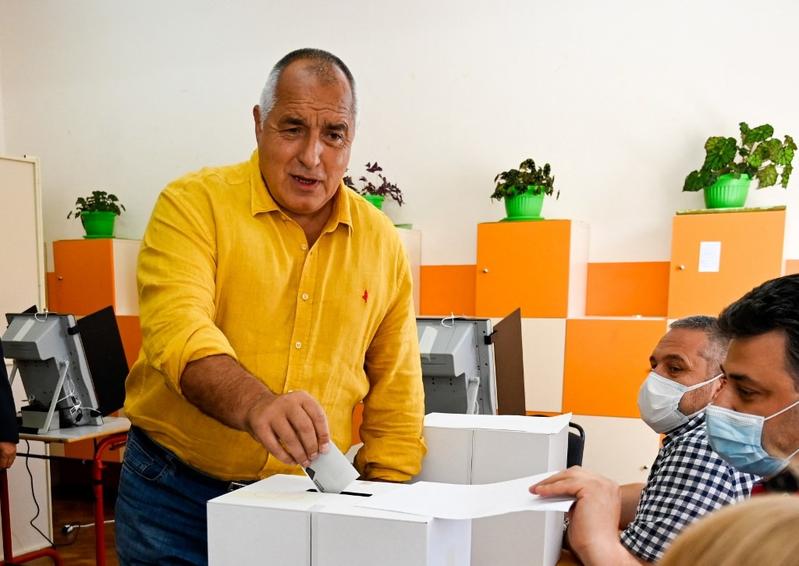 In this July 11, 2021 photo, former Bulgarian Prime Minister and leader of centre-right GERB party Boyko Borisov casts his vote at a polling station during the country's parliamentary election in Sofia. (NIKOLAY DOYCHINOV / AFP)
In this July 11, 2021 photo, former Bulgarian Prime Minister and leader of centre-right GERB party Boyko Borisov casts his vote at a polling station during the country's parliamentary election in Sofia. (NIKOLAY DOYCHINOV / AFP)
Bulgaria edged closer to a third parliamentary election this year when former Prime Minister Boyko Borissov’s party rejected an invitation to form a new government, deepening a political crisis after two inconclusive elections.
After facing widespread public protests over his failure to fight endemic corruption for most of last year, former PM Boyko Borissov doesn’t have the support of any other political force in parliament
After running the Balkan European Union member for more than a decade, Borissov lost a re-run election last month by a razor-thin margin to an anti-establishment party led by pop-folk singer and talk-show host Stanislav Trifonov.
With only 65 lawmakers in the 240-seat assembly, Trifonov’s ITN party failed to secure a majority after the three parties he approached as potential partners shunned him on the grounds that his proposed cabinet couldn’t guarantee political change.
After facing widespread public protests over his failure to fight endemic corruption for most of last year, Borissov doesn’t have the support of any other political force in parliament. Gerb’s premier-designate, former Foreign Minister Daniel Mitov, returned the government-forming mandate to President Rumen Radev on Friday without holding talks with other parties.
“We don’t see an option to fulfill the second mandate,” Mitov said.
ALSO READ: No clear winner emerges from Bulgarian parliamentary election
Radev will next give the mandate to a third group of his choice. But the chance that a new government will find majority support remains slim, as Trifonov said his lawmakers won’t support a cabinet proposed by another party.
The fractured parliament complicates matters for Bulgaria, which remains the EU’s most corrupt and poorest nation. The EU has slammed Bulgaria for failing to uphold the rule of law and has kept the country out of the Schengen zone that allows passport-free travel.
The uncertainty also comes at a time when Bulgaria is expecting billions of EU funds to help it recover from the crisis. The interim government is looking to revise this year’s budget and secure additional funding to fight a new surge in the pandemic. With the EU’s slowest vaccination campaign, Bulgaria is already facing a rise in new deaths and infections.


